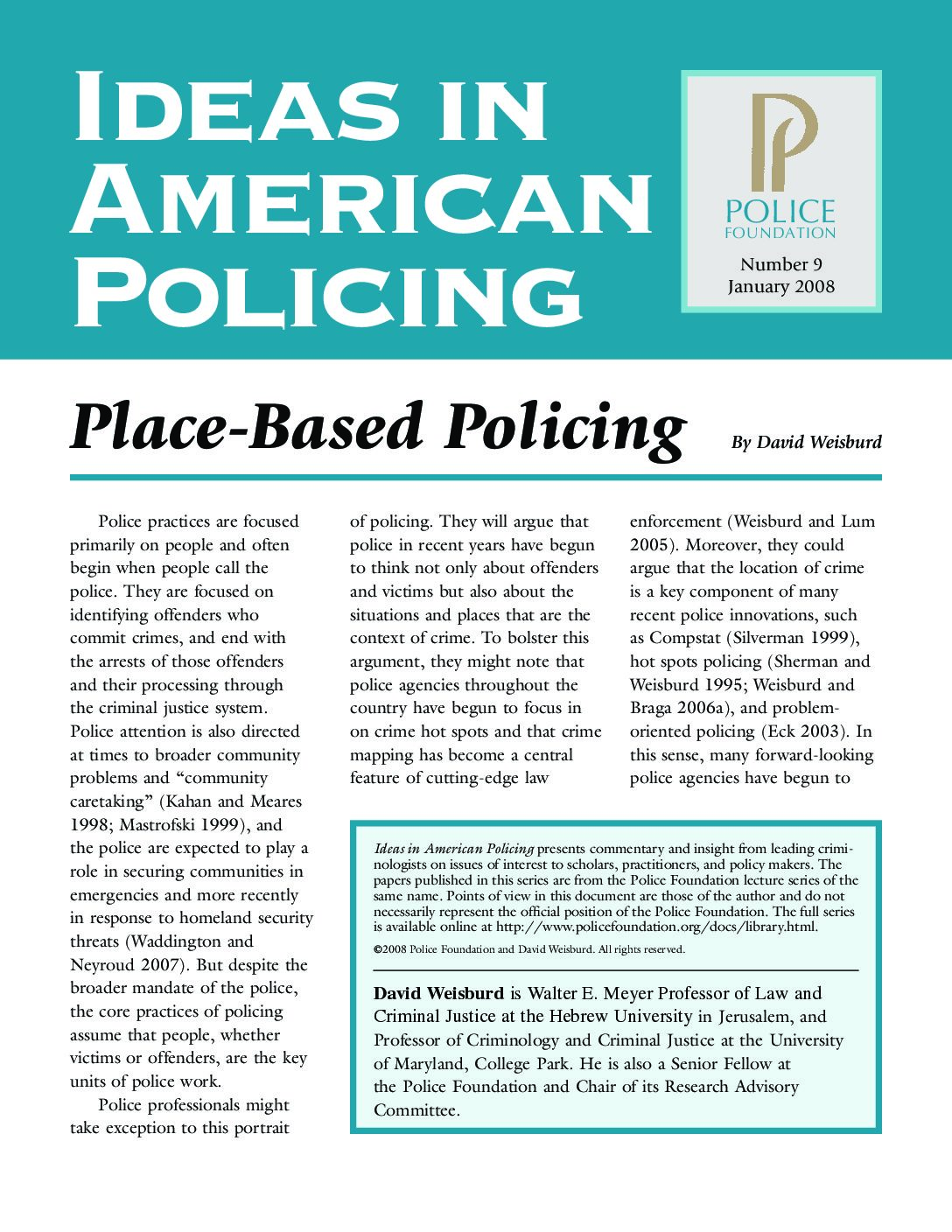Publication Date
January 2008
Author(s)
David Weisburd
Abstract
The core practices of policing assume that people, whether victims or offenders, are the key units of police work. However, many forward-looking police agencies have begun to recognize that places as well as people need to be considered if police are to do something about crime and other related problems. Place-based policing focuses on places where crimes are concentrated and it begins with an assumption that there is something about a place that leads to crimes occurring there. In this sense, place-based policing is theoretically based on “routine activities theory,” which identifies crime as a matter of the convergence of suitable targets, an absence of “capable guardians,”, and the presence of motivated or potential offenders. Place-based policing provides an approach that is likely to be more efficient than person-based policing in terms of the allocation of police resources. It also provides a focus for police interventions that is relatively stable across time and more easily targeted than offender-based crime prevention. Research suggests that it is time for police to shift from person-based policing to place-based policing. It will demand radical changes in data collection in policing, in the organization of police activities, and particularly in the overall world view of the police. It remains true today that police officers see the key work of policing as catching criminals. It is time to change that world view so that police understand that the key to crime prevention is in ameliorating crime at place.
Recommended Citation
Weisburd, D. (2008). Place-based policing. Washington, DC: National Policing Institute. https://www.policinginstitute.org/publication/place-based-policing/
Series
Strategic Priority Area(s)
Topic Area(s)
Contact
For general inquiries, please contact us at info@policinginstitute.org
Share
Series
Strategic Priority Area(s)
Topic Area(s)
Contact
For general inquiries, please contact us at info@policefoundation.org
Share


